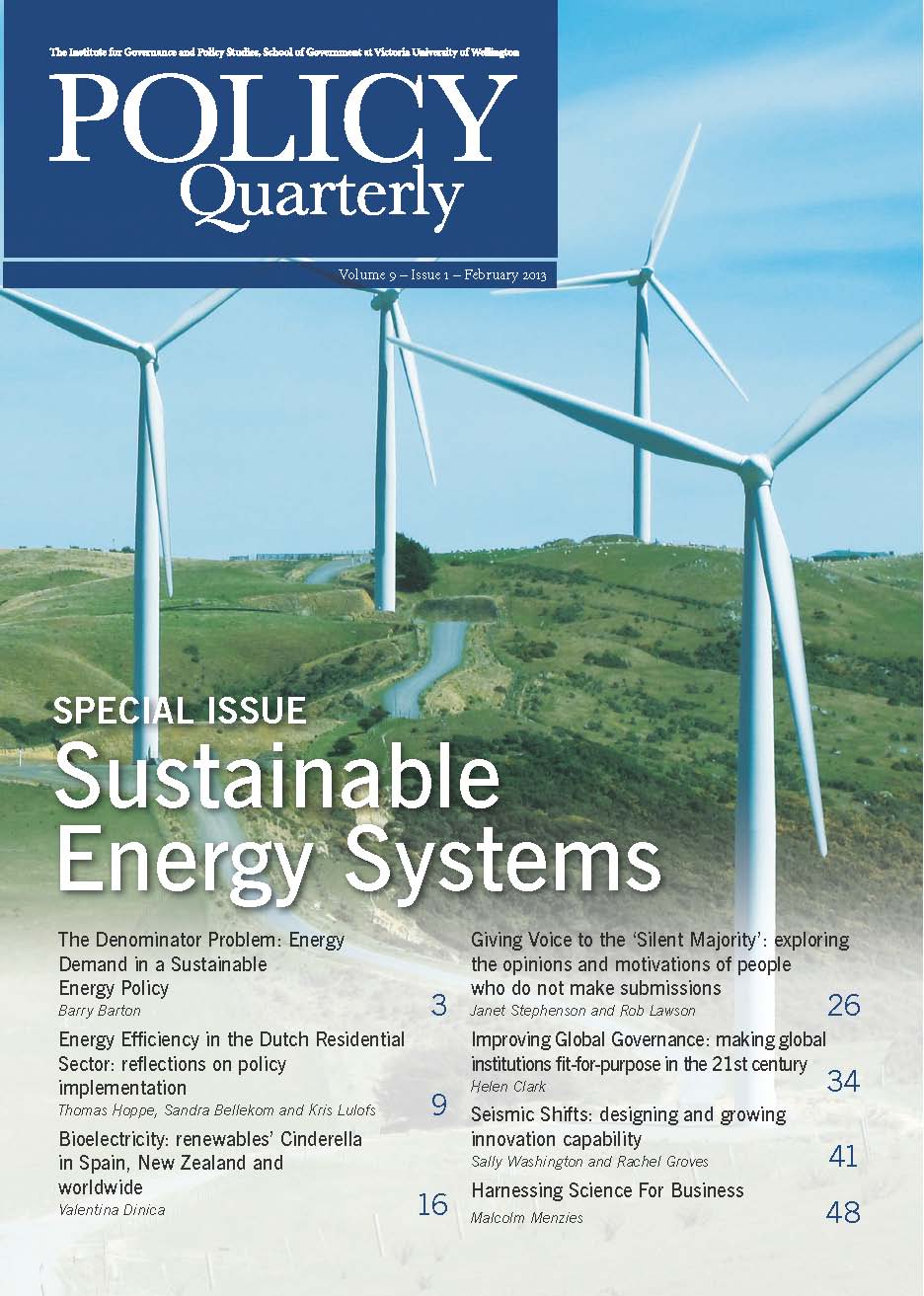The denominator problem: energy demand in a sustainable energy policy
DOI:
https://doi.org/10.26686/pq.v9i1.4441Keywords:
long-term sustainability, role of energy efficiency, economic needs, World Energy Outlook, Energy Efficiency and Conservation Act, national energy efficiency and conservation strategies (NEECS), renewables policyAbstract
Often when people think of policy for long-term sustainability they think of energy supply and not energy demand. What comes to mind often are new sources of supply on the very edge of technology, such as shale gas and deep-sea oil resources; or it may be renewable energy sources, such as hydro, wind, solar, geothermal and biofuels. But if people focus exclusively or excessively on supply, they are overlooking the demand side. How much energy must we produce in order to meet our human and economic needs? What assumptions are we making about future energy demand? In regard to a particular energy project going through an environmental impact assessment process, how do we evaluate whether the project is necessary?
Downloads
Downloads
Published
Issue
Section
License
Permission: In the interest of promoting debate and wider dissemination, the IGPS encourages use of all or part of the articles appearing in PQ, where there is no element of commercial gain. Appropriate acknowledgement of both author and source should be made in all cases. Please direct requests for permission to reprint articles from this publication to Policy-Quarterly@vuw.ac.nz.



